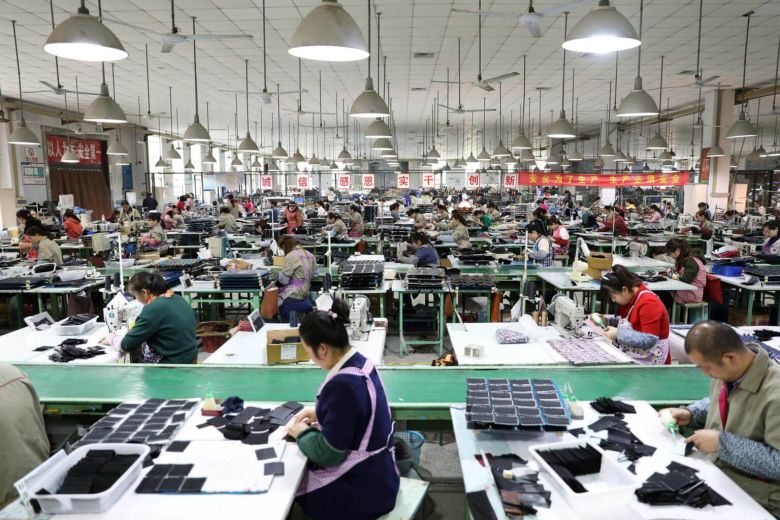China's factory rebound heralds improvement in global outlook
Sun 31 Mar 2019, 12:20:12

China's first official economic gauge for March signalled a stabilisation in the world's second-largest economy, easing one of the biggest worries for the global outlook.
The manufacturing purchasing managers index rose to 50.5 from 49.2 last month, the biggest increase since 2012 and exceeding all estimates by economists. Both new orders and new export orders - leading sub-gauges that signal future activities - rose to the highest levels in six months.
That was good news for global investors, as China's weakening demand had weighed on sectors such as auto producers and commodity exporters worldwide.
However, with tariffs and uncertainty about whether a deal with the United States will be signed weighing on trade and no sign of a rebound in domestic consumption yet, there is still a way to go.
"China's economy has improved, supporting a stabilisation in the global economy," said Mr Hua Changchun, global chief economist at Guotai Junan Securities. That stabilisation will also lift the European and US economies, and may lead to a global asset price increase, he said.
Sunday's release backs up signs of recovery seen in the earliest data on the economy, which showed business confidence and stock markets improving amid policy support and progress in the China-US trade talks. The government is also showing signs of optimism, with Premier Li Keqiang last week telling business people
that the economy is doing better in the first quarter than expected.
that the economy is doing better in the first quarter than expected.
Still, there is evidence for caution. New export orders are still contracting even after the pickup from the lowest level in a decade in February. In addition, the rise in the March data may overstate the actual increase in activity, as the Chinese New Year holiday in February weighed down the data then, according to economist Zhou Hao at Commerzbank in Singapore.
If tomorrow's data on South Korean March exports confirm a pickup, the market will be further convinced that China's economy is turning around, Mr Zhou said. That will marginally lift concerns about a downturn in China, and lower expectations in the short term for a reduction in the amount of money banks must keep in reserve, he said.
Growth of the world's second-largest economy will slow further this quarter to 6.2 per cent from a year earlier and stabilise at that level throughout 2019, according to economists surveyed by Bloomberg.
The government has repeatedly vowed not to resort to "flood-like" stimulus and may pare back support measures if things do start looking better.
"Once the rebound is confirmed, the government will not use up their fiscal firepower," according to Mr Ding Shuang, chief China and North Asia economist at Standard Chartered Bank in Hong Kong.
According to Mr Ding, the government is still concerned about local government debt risks, and if the trade talks reach a deal there will likely be a reduction in policy stimulus around mid-year.
No Comments For This Post, Be first to write a Comment.
Most viewed from International
Most viewed from World
AIMIM News
Latest Urdu News
Most Viewed
May 26, 2020
Do you think Canada-India relations will improve under New PM Mark Carney?
Latest Videos View All
Like Us
Home
About Us
Advertise With Us
All Polls
Epaper Archives
Privacy Policy
Contact Us
Download Etemaad App
© 2025 Etemaad Daily News, All Rights Reserved.

.jpg)
.jpg)
.jpg)






.jpg)


.jpg)
.jpg)
.jpg)
.jpg)
.jpg)
.jpg)
.jpg)
.jpg)
.jpg)
.jpg)
.jpg)
.jpg)

















